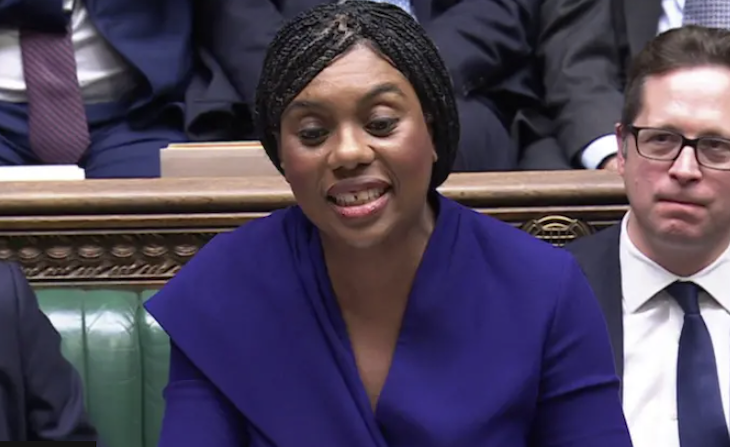If the new government’s ‘pensions review’ takes forward last year’s ‘Mansion House reforms’ – credited to chancellor Jeremy Hunt but largely the work of the then Lord Mayor of London, Nick Lyons, and designed to push the UK’s largest private-sector pension providers to commit funds to unlisted equities and vital infrastructure – all to the good. If it succeeds in ‘unleashing the full investment might’ of the £360 billion Local Government Pension Scheme (LGPS), as the new Chancellor Rachel Reeves says she intends, even better. We’d have a public investment fund to rival those of the Netherlands and Singapore, though still way behind the likes of Norway and South Korea.
But the LGPS is currently held in no fewer than 87 separate funds, each with their own trustees and managers and collectively clocking up £2 billion of annual fees and costs: imagine all the town hall fiefdoms and masonic stitch-ups that will have to be taken apart to convert that lot into Reeves’s ‘engine for UK growth’.
Even then, a huge clash looms over the question of whether a state-directed drive of UK pension monies into domestic investment – rather than leaving trustees sitting comfortably on the globalised, lower-risk portfolios they tend to prefer – would really produce richer returns (boosting individual pension pots ‘by over £11,000’ being Labour’s meaningless opening soundbite on that front) or poorer ones. In which case, millions of workers will have to be pushed to save more for their own retirement, and that will feel like a tax rise.
In short: yes, the inadequacy of the collective UK pension pot is a problem that’s been too long buried. Yes, strategic UK investment needs a massive boost, nuclear power being the most obvious case in point, and new magnetism needs urgently injecting into broader UK equity markets. And yes, a new government needs to draw the City into its narrative, do nothing (on public sector pay, for example) to frighten the markets, and give the impression it knows what it wants to achieve. No one should wish a new chancellor to fail, on pensions or anything else. But ‘reviews’ are mere smoke signals: delivery will take decades, if not forever.
Let’s get packing
Is it the dismal weather? Or Labour’s campaign to persuade us that the Tories left the economy in ruins when in fact it’s moderately perky? Is it, even before last week’s giant IT outage, something to do with the sheer capacity for embuggerance of modern international travel? How curious, in arguably the first year since the pandemic that we’re all free to go where we wish and the fall of inflation has made us feel we can afford a few treats, that Ryanair should be reporting a 46 per cent profit drop for the second quarter, blaming ‘frugal’ passengers for downward pressure on fares; and that Air France-KLM can’t even sell flights to Paris for the Olympics, where half a million tickets remain unsold? The only advice I can offer is to cheer up, start packing and (I hope this helps) ask yourself, honestly: how many summers have I got left?
Just stop stupidity
If jail sentences were handed out for sheer stupidity, the punishments imposed on Just Stop Oil protestors at Southwark Crown Court – including a five-year stretch for their leader Roger Hallam – for their efforts in bringing the M25 to a halt in November 2022 would look pretty lenient.
These fanatics, as Judge Christopher Hehir called them, have done untold damage to their own cause of persuading citizens to force governments to halt the extraction and burning of carbon fuel. Their disruptions must have won round thousands of motorists – otherwise perhaps starting to worry seriously about climate change – to the view that the only way to keep economic life moving is to honk at idiots chained to gantries and fill up the old-fashioned way until science provides viable alternatives. In that sense, Just Stop Oil has awarded the carbon industry a licence to carry on as long as it’s needed – and Hallam now has ample time to start scratching that conclusion on his cell wall.
But here’s a contrasting example, from half a century ago, of how to let Big Oil deliver its product while paying its proper dues for environment damage. Ian Clark, who died recently, was the county clerk who nailed an extraordinary financial deal for the Shetlands as the North Sea’s rich Brent Field opened up.
A former worker at the islands’ Sullom Voe terminal recalls how Clark insisted that its loading jetty would be owned by the council but that BP would pay to build, maintain and eventually demolish it, while the council charged a levy on each barrel of oil that ever passed over it. ‘Outcome: every village in Shetland has superb roads, sports facilities etc. Hats off to the man.’
Then you set fire to it?
How marvellous also to be reminded – at his passing, aged 94 – of the great American comedian Bob Newhart’s monologue in which Sir Walter Raleigh pitched the novel concept of smoking tobacco to a doubting investor: ‘Don’t tell me, Walt… You stick it in your ear, right? Oh! Between your lips! Then what do you do, Walt? You set fire to it! Ha! Ha! Ha!’
Of course, the line that was missing – because it wasn’t known for sure when Newhart was recording in 1962 – was: ‘And then it kills you, right?’ The equivalent today might be: ‘So you confide your entire innermost life to something called social media, Walt? And then what? You wait for all the world’s bile, rage and madness to come right back at you?’
Or maybe: ‘You’re gonna connect airports and surgeries everywhere to some $400 software from an unheard-of supplier and when the damned thing breaks down no one offers compensation, someone tries to blame Brussels and you’re staring at eight and half million “blue screens of death”? What exactly have you been smoking, Walt?’








Comments